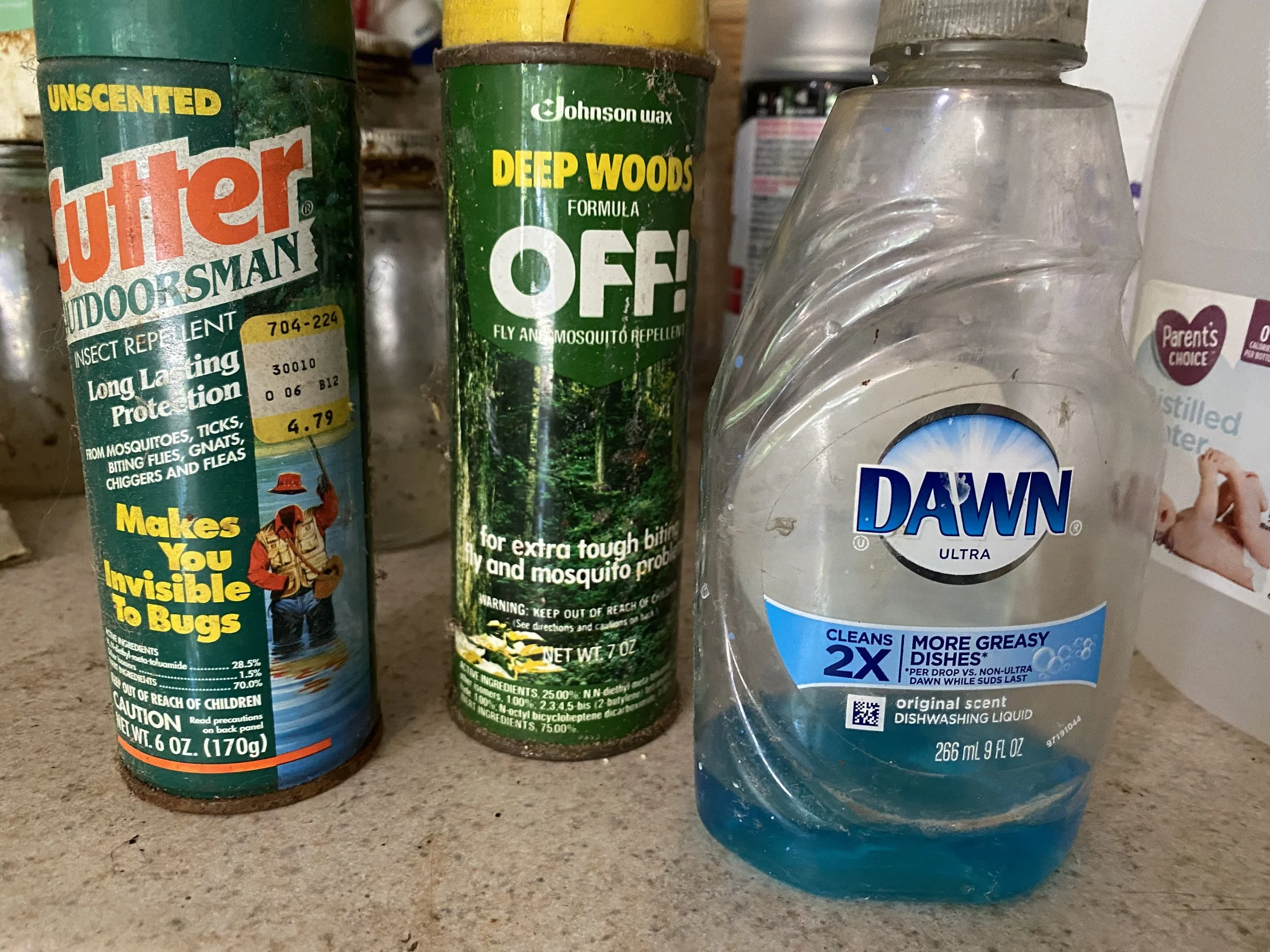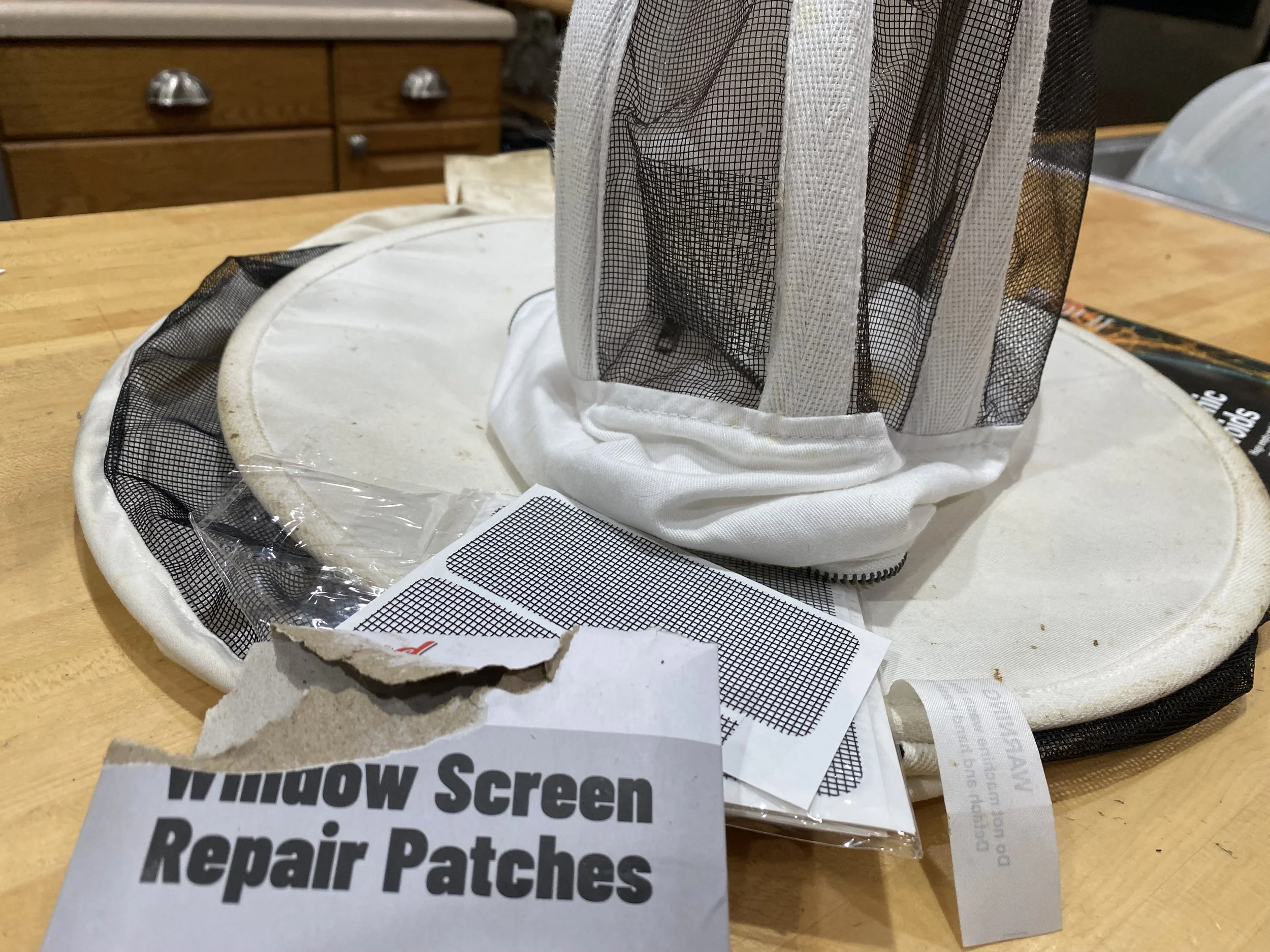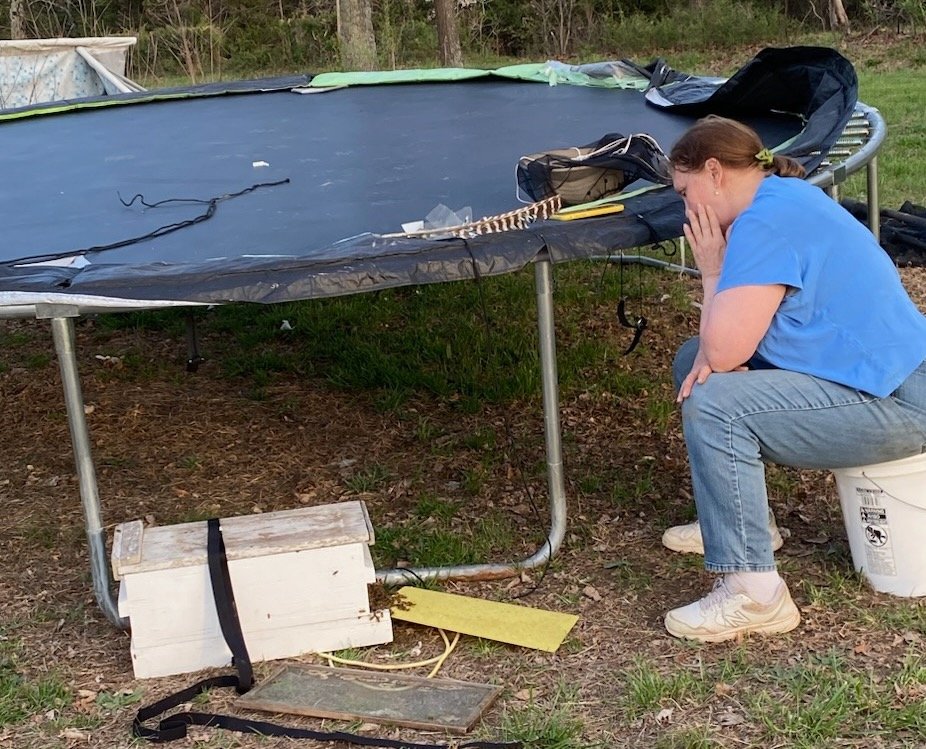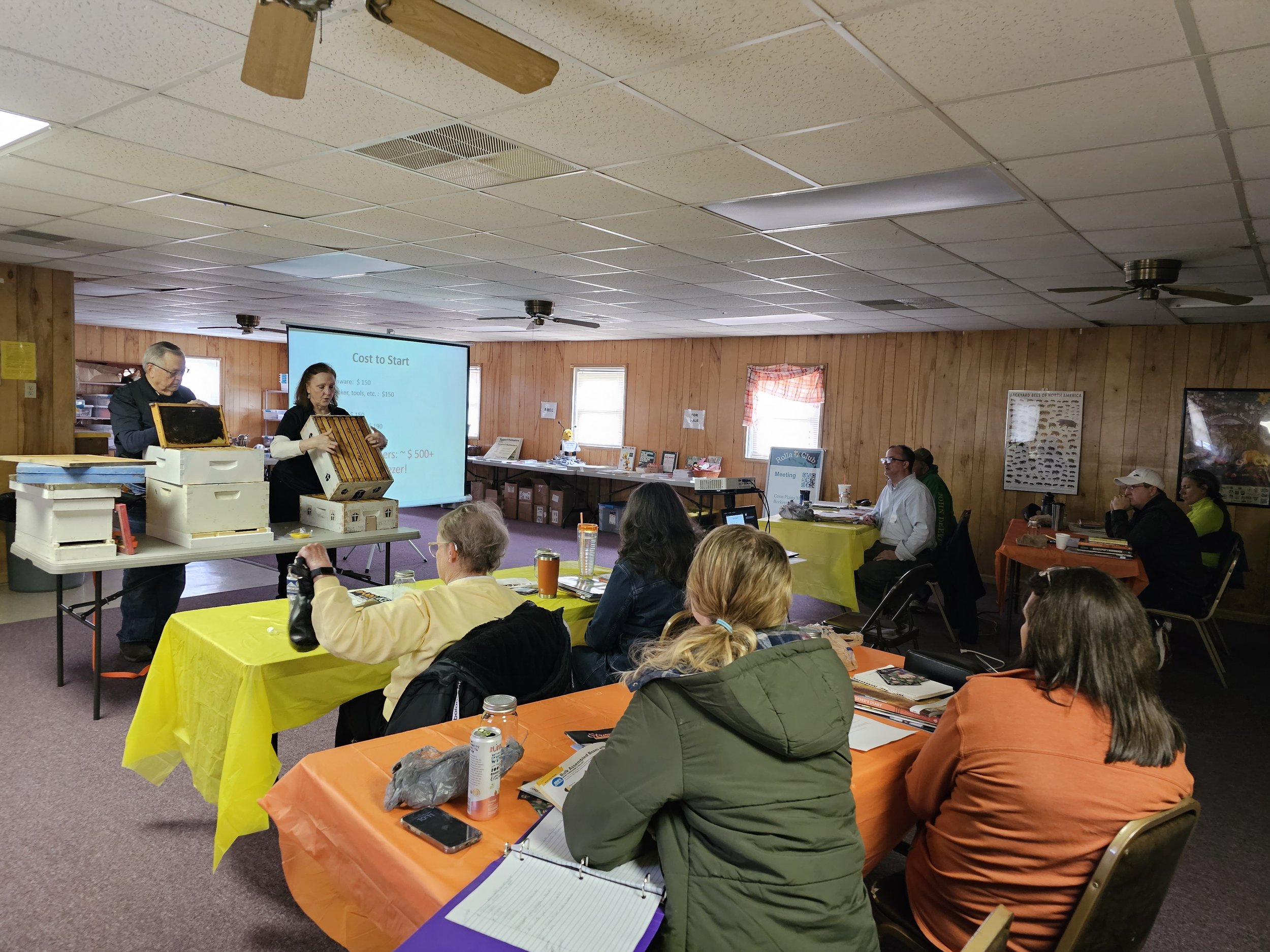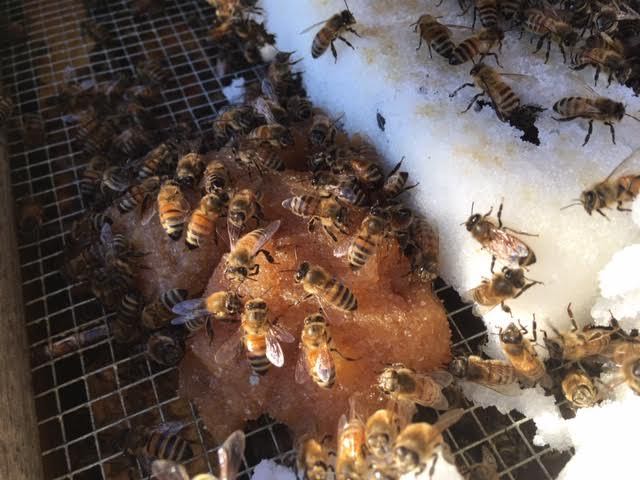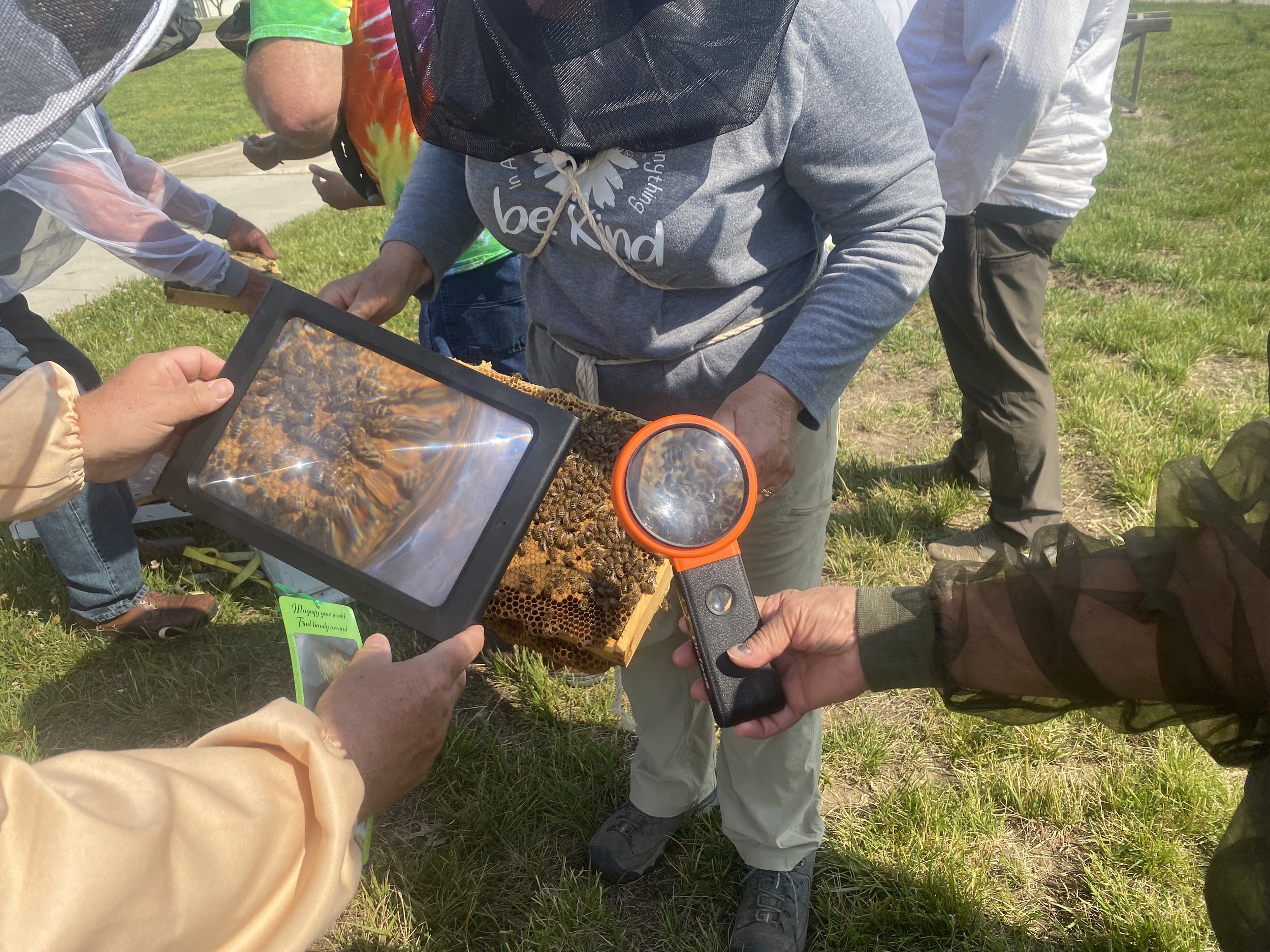Are There Safe Insect Repellents
/Are any of these products safe for bees and other pollinators? (Charlotte ekker wiggins photo)
“Can I use “Off” on my beekeeping suit to keep ticks off…..can I use pesticide sprays and if not, dishwashing liquid, to protect my crops from unwanted insects?” — Three emails
Are There Safe Insect Repellents
Beekeepers avoid using products like Off, other insect-repelling sprays, pesticides, insecticides, and even household items like dishwashing liquid for a few important reasons—all centered around protecting bees and maintaining hive health.
1. Toxicity to Bees
Off and similar repellents contain DEET or other synthetic chemicals that are toxic to bees, even in small amounts.
Most insecticides—whether synthetic or organic—target the nervous systems of insects. While they may be intended for pests, they do not discriminate between pests and beneficial insects like bees.
2. Chemical Residues on Plants
When these products are sprayed on plants, especially those in flower, they leave behind residues that bees ingest when foraging. These toxins are carried back to the hive in nectar and pollen, potentially contaminating the colony and causing bee illness, disorientation, or death.
3. Long-Term Contamination
Many insecticides have long half-lives, meaning they persist in the environment and in plant tissues. This extends the risk period during which bees can be harmed.
4. Dishwashing Liquid Is Not a Safe “Natural” Option
Although often touted in home remedies, dish soap contains surfactants and degreasers that can:
Disrupt the protective waxy layer on plant leaves, causing damage.
Harm soft-bodied insects indiscriminately, including beneficial insects like lacewings and ladybugs, and pollinators.
Kill bees if sprayed on blooming flowers or if residue remains when bees land on treated surfaces.
5. Hive Contamination and Brood Impact
Bees exposed to these chemicals can bring them back to the hive where they may:
Accumulate in wax and honey (a major concern for beekeepers who sell honey).
Affect brood development and queen fertility.
Weaken colony health over time, making bees more vulnerable to disease and parasites like varroa mites.
Safer Alternatives
For beekeepers and pollinator-conscious gardeners:
Use physical barriers, companion planting, or biological controls like ladybugs.
If absolutely necessary, use horticultural oils or insecticidal soaps that are specifically labeled as safe for pollinators—and only apply them in the early morning or at dusk, when bees are not foraging.
What kills or repels pests often kills or repels pollinators too. Beekeepers must prioritize bee-safe, non-toxic practices that support the health of their colonies and the ecosystems they depend on.
For more gardening, beekeeping, cooking and easy home decor tips, subscribe to Garden Notes.
Charlotte

